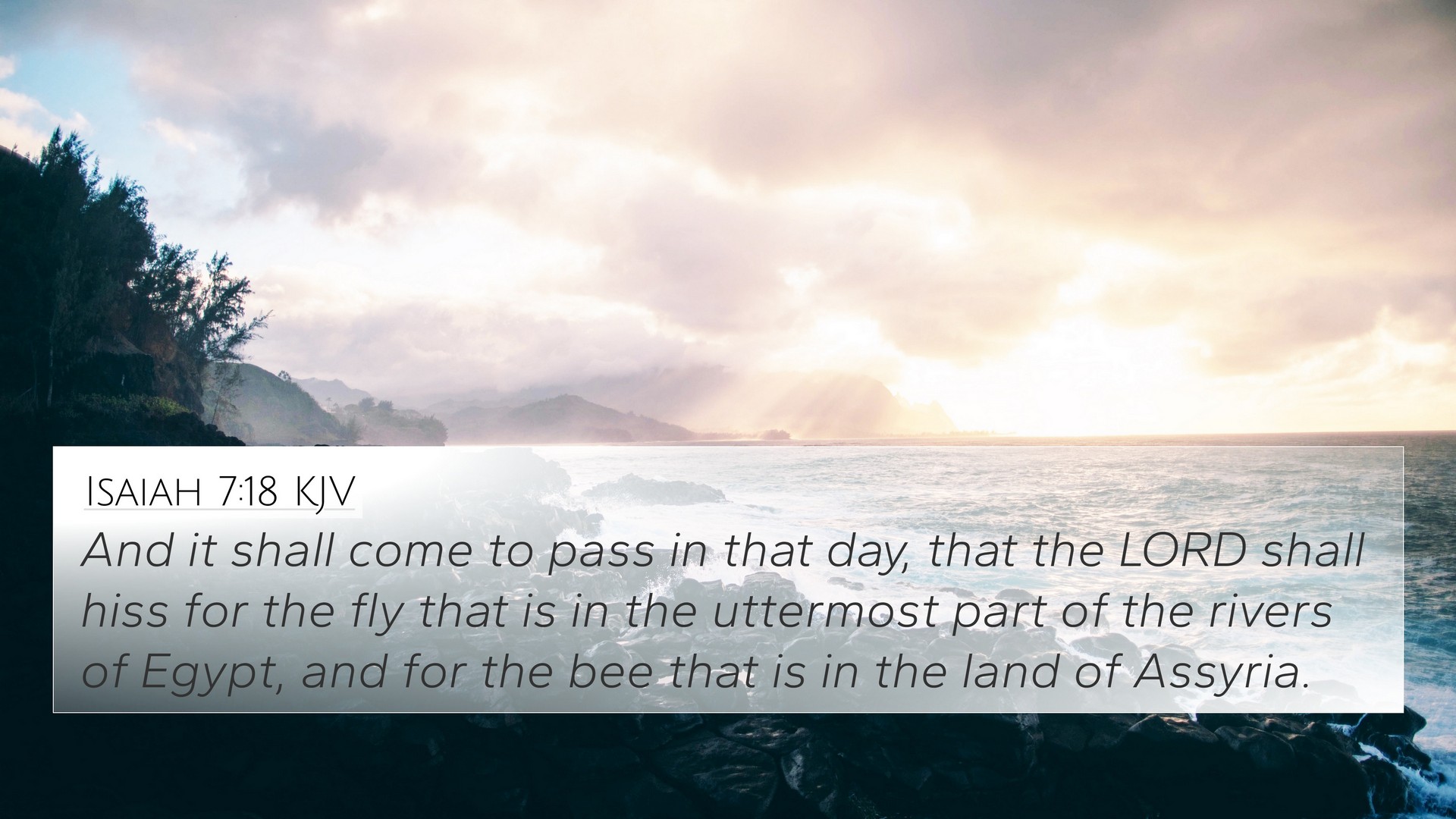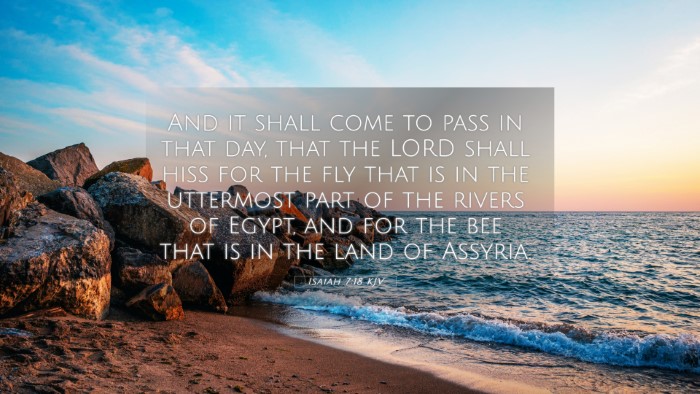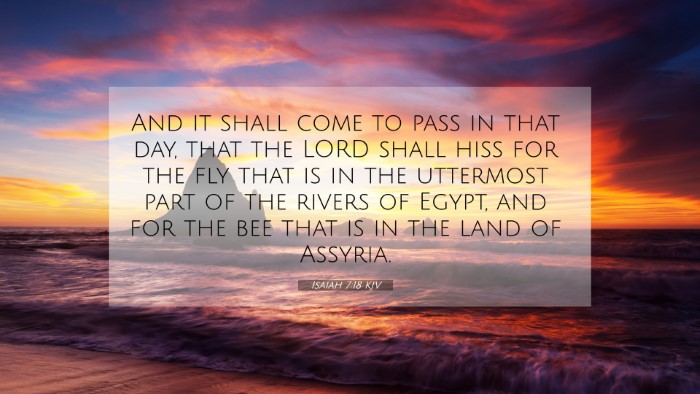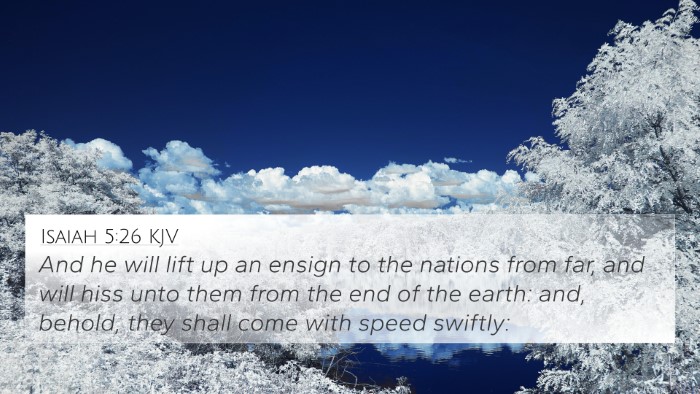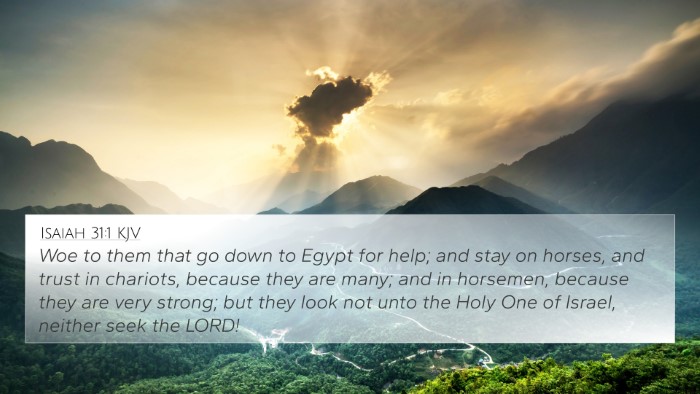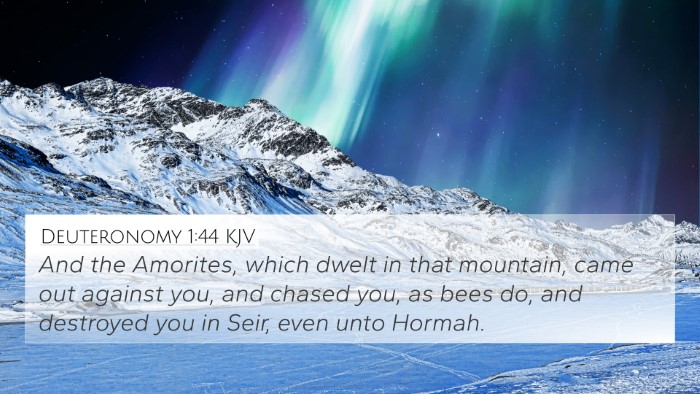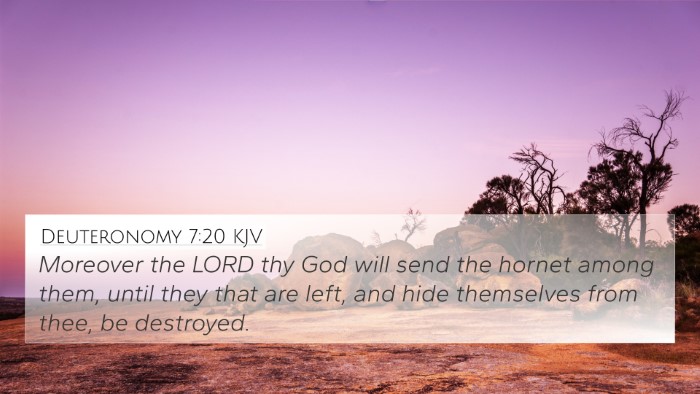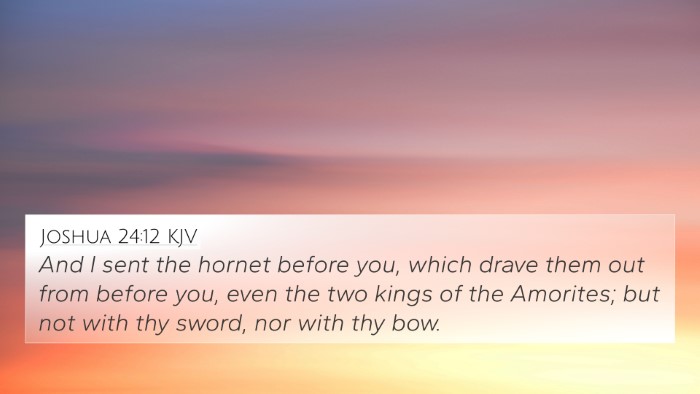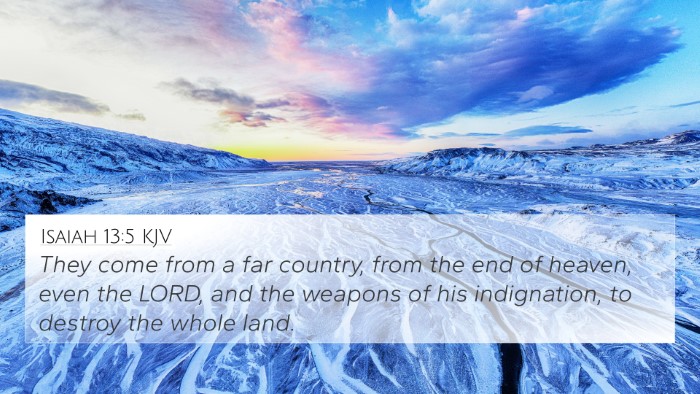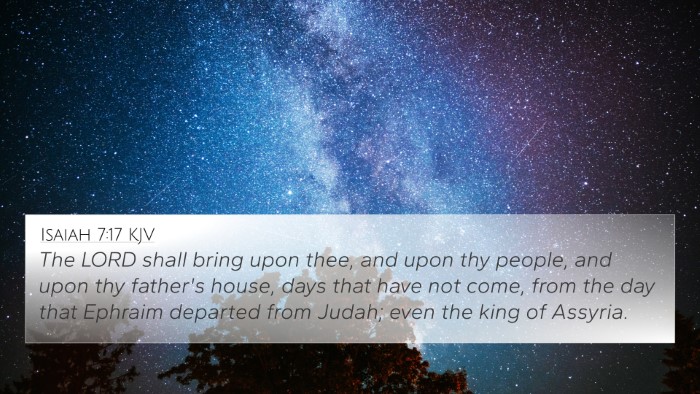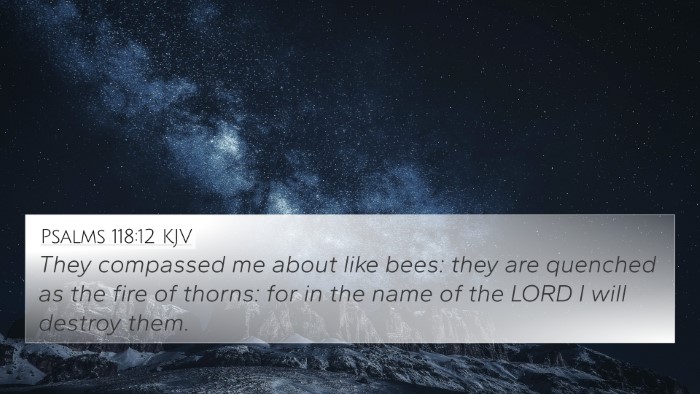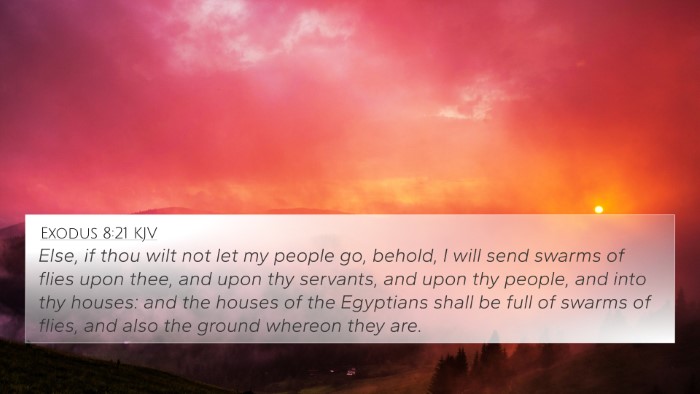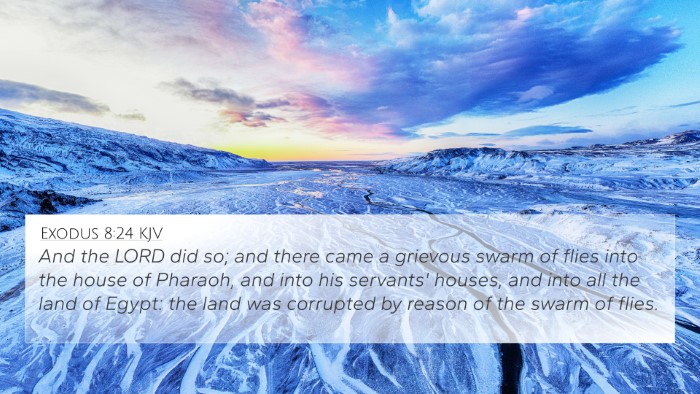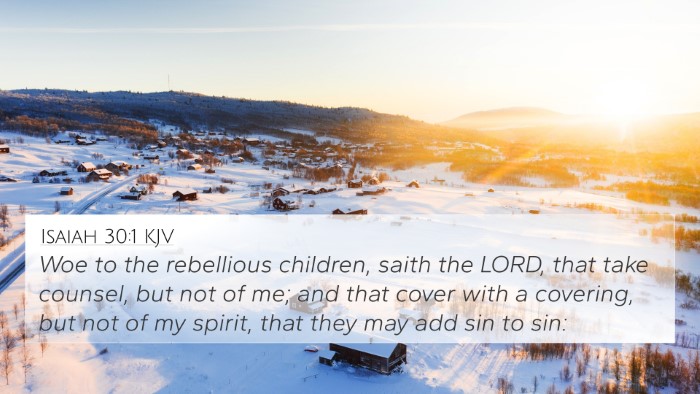Understanding Isaiah 7:18
Isaiah 7:18 reads: "And it shall come to pass in that day, that the Lord shall hiss for the fly that is in the uttermost parts of the rivers of Egypt, and for the bee that is in the land of Assyria."
This verse, nestled within the prophetic context of Isaiah, carries significant meaning and implications for the nation of Israel during a time of political upheaval and impending invasion.
Verse Meaning and Context
Isaiah prophesies during the reign of King Ahaz, a time marked by fear of military attack from surrounding nations. The imagery of God hissing for the fly and the bee represents divine sovereignty. The swarming insects symbolize the armies of Assyria and Egypt—mighty forces that would be used by God to fulfill His will.
Commentary Insights
-
Matthew Henry:
Henry highlights God's ability to summon nations to execute His plans. The 'fly' and 'bee' signify not just pests but also the swift and pervasive nature of the armies. These creatures, like the approaching armies, will come at God's command and serve His purpose in chastising Israel.
-
Albert Barnes:
Barnes points out that the reference to the 'fly' and 'bee' indicates both the strength and the swiftness of these foreign powers. The choice of these creatures shows that nations, even powerful ones, are under God's control and will come to Israel when He calls them, whether in judgment or deliverance.
-
Adam Clarke:
Clarke elaborates on the geographic symbolism, indicating that the 'uttermost parts of the rivers of Egypt' and 'land of Assyria' represent the far reaches of God's influence. This indicates that even from the furthest corners, God can command nations against Israel—a stark reminder of His omnipotence.
Thematic Connections
The verse further serves as a reminder of God's overarching plan and His ability to utilize foreign nations to accomplish His will. This is often reflected in various themes throughout scripture.
Bible Verse Cross-References
- Exodus 10:1-4 - Discussing God's control over plagues and His ability to command nature.
- Isaiah 5:26 - God summoning nations from afar as instruments of His judgment.
- Jeremiah 5:15 - Reference to the people’s betrayal and the impending judgment through foreign powers.
- Ezekiel 39:17-20 - Imagery of God bringing nations to judgment against His enemies.
- Hosea 8:1 - Israel called to recognize the impending disaster from foreign invaders.
- Psalm 83:15 - A plea for God to treat the enemies of His people like swarming insects.
- Revelation 7:1 - Angels holding back the winds, showing God’s control over nations.
Inter-Biblical Dialogue
Isaiah 7:18 invites believers to explore the connections between this Old Testament prophecy and New Testament themes of God’s sovereignty. By cross-referencing passages from the New Testament, we can see how God's control over nations is echoed in the stories of Jesus and the Apostles, underscoring the unity of scripture.
Thematic Bible Verse Connections
- Matthew 24:7: Nations rising against nations echoes the unrest during Isaiah's time.
- Acts 17:26: God has determined the boundaries of nations, emphasizing His divine governance.
- 2 Peter 3:9: God's patience with nations calls to the theme of divine mercy and judgment.
How to Use Bible Cross-References
For those studying scripture, using a Bible concordance or cross-reference guide can enhance understanding. By identifying connections between verses, one gains deeper insights into themes, such as judgment, mercy, and God’s sovereignty, as highlighted in Isaiah 7:18.
Conclusion
Isaiah 7:18 provides powerful insights into God’s governance over nations and His ability to call upon them for His purposes. By linking it with other biblical texts, we can see a comprehensive view of God's sovereignty throughout scripture.
